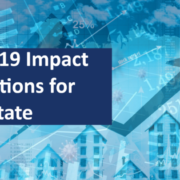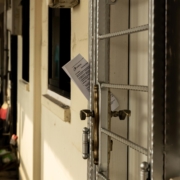Commercial and Residential Evictions in California in the time of COVID-19 (Part 3 of 3) Updated as of: August 13, 2020
Part 1 and Part 2 of this three-part article, which addresses Governor Newsom’s statewide California eviction moratorium and the City of San Diego, can be found here and here.
The Judicial Council of California’s Emergency Rule 1
On April 6, 2020, the Judicial Council of California adopted 11 categories of COVID-19 emergency rules to assist California courts in a variety of respects, one of which is evictions. Pursuant to Emergency Rule 1, effective immediately, essentially all evictions and unlawful detainers are suspended. The rule prohibits any California Court from issuing a summons on any unlawful detainer complaint, as well as entering the default of any tenant in any unlawful detainer action. There is a narrow exception for actions necessary to “protect public health and safety;” however, this phrase is undefined. As originally drafted, this Rule was set to remain in place until 90 days after Governor Newsom lifts the California State of Emergency declaration.
As time ticked by and the pandemic worsened across California, it became quite clear that the California State of Emergency was not going to be lifted any time soon. As a result, the statewide ban on evictions, pursuant to Emergency Rule 1, was essentially set to be in place indefinitely. Realizing this and reiterating the intent of Emergency Rule 1 to only be temporary, the Judicial Council of California took action to amend Emergency Rule 1.
On August 13, 2020, the Judicial Council voted 19-1 to amend Emergency Rule 1 to end California’s statewide eviction freeze. Pursuant to the Judicial Council’s amendment, the statewide eviction freeze will be lifted as of September 1, 2020. In voting to amend the eviction ban, California Chief Justice Tani G. Cantil-Sakauye stated, “The duty of the judicial branch is to resolve disputes under the law and not to legislate. I urge our sister branches to act expeditiously to resolve this looming crisis.”
The Judicial Council’s eviction suspension was extraordinarily broad in that it did not limit itself to situations in which commercial or residential tenants are grappling with financial difficulties caused by COVID-19, and, instead, served as a blanket suspension on evictions. For over five months, the Emergency Rule has prevented landlords from taking any legal action against any tenant, regardless of whether the tenant has been affected by COVID-19. Now, with the passage of the Judicial Council’s Amendment to lift the statewide eviction freeze, California State Courts can now resume all unlawful detainer proceedings that came to a sudden halt in April of 2020 and begin processing all unlawful detainer complaints filed during the eviction freeze.
Similar to Governor Newsom’s eviction Order, the Judicial Council’s rule did not alleviate the root problem of tenants being unable to pay rent. As noted by the California Chief Justice, the legislature—not the judiciary—have the proper tools to attempt to solve the inevitable eviction crisis, and it will up to the California legislative bodies to craft a solution to afford relief to residential tenants. One such measure that the State Legislature is considering is AB 1436, which strikes a balance of protecting financially impacted tenants from eviction while also preserving landlords’ rights.
AB 1436 prohibits landlords from evicting tenants that cannot pay rent due to the economic effects of COVID-19. However, the proposed law permits landlords to evict a tenant that is not financially affected by COVID-19 and fails to pay rent, or a tenant that occupies the property unlawfully. In its current form, AB 1436 satisfies landlords’ interests and concerns and protects tenants that have felt the financial impacts of COVID-19. AB 1436 does not apply to commercial tenancies.
President Donald Trump’s Executive Order to Ban All Evictions
On August 8, 2020, President Donald Trump signed four separate executive orders, one of which was meant to protect all U.S. renters from eviction (the “Order”). However, the Order does little to achieve its overall purpose as it does not restrict any landlord, commercial or residential, from evicting a tenant.
The Order directs the Secretary of Health and Human Services and the Director of the CDC to evaluate whether halting evictions is “reasonably necessary to prevent the further spread of COVID-19.” The Order also instructs the Secretaries of the Treasury and Housing and Urban Development departments to identify all federal funds that can be used to provide temporary financial assistance to renters that are struggling to pay rent. The Secretaries of Treasury and Housing and Urban Development are further required to “promote the ability of renters and homeowners to avoid eviction.”
The Order does little to effectuate an instant protection to millions of Americans—and Californians—that are struggling to pay rent. Rather, the Order requires that other federal agencies investigate the problem and determine if it necessary to halt evictions and provide financial relief to renters. Looking ahead, all renters across the U.S., including California renters, must look to their state legislatures and local municipalities for assistance.
Conclusion & Recommendations
Commercial and residential landlords and tenants are facing an incredibly unique and unparalleled set of circumstances. The temporary eviction moratoriums at both the state and local levels have been enacted to try and combat not only the financial and economic stresses caused by the COVID-19 pandemic, but also the consequences of such stresses, such as losing one’s home or possession of a business. It is important to be cognizant of the fact that there are sure to be situations and instances that remain unaddressed, subject to dispute or simply fall within the inevitable grey areas. Additionally, the landscape will continue to shift and landlords and tenants should continue to look for the most recent updates.
With that in mind, landlords and tenants should try to be patient with each other and remain organized. Document as much of the interactions with your tenant or landlord as you can, and preserve all letters, notices, correspondence (e-mails and text messages included) exchanged with your landlord or tenant. Additionally, both landlords and tenants should understand that tenants will still be responsible for the rent that they are unable to pay on time. The eviction moratoriums do not forgive tenant’s missed rent payment. Finally, the requirements in the Orders and Ordinance speaking to notice and documentation are the minimum requirements. There is nothing from preventing a landlord or a tenant from engaging further with one another to try and come to mutual understandings, payment plans, lease addendums or the like and such options should almost always be considered.
Should you have questions or concerns about your rights or obligations, whether from a landlord or tenant’s perspective, an experienced real estate attorney can help you navigate these issues and the uncertainty that comes along with them.
The materials available at this web site are for informational purposes only and not for the purpose of providing legal advice. You should contact your attorney to obtain advice with respect to any particular issue or problem. Use of and access to this web site or any of the e-mail links contained within the site do not create an attorney-client relationship. The opinions expressed at or through this site are the opinions of the individual author and may not reflect the opinions of the firm or any individual attorney.







